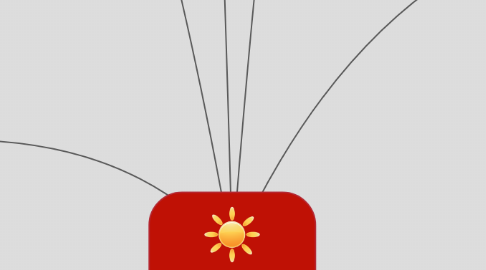
1. Client First
1.1. Niave Questions
1.2. Values
1.3. Rapport
1.4. Priorities
1.5. No Agenda
1.6. Experts in Own Life
1.7. Listen/Care
1.8. Challenge
1.8.1. Respect
1.8.2. Guide
1.8.3. Values
1.8.4. Opinions
1.8.5. No Agenda
1.9. Fostering Associations
2. Informal Education
2.1. Politics
2.1.1. personal
2.1.2. professional
2.1.3. religious
2.2. Role Model
2.2.1. what you do
2.2.2. what you say
2.2.3. what you say
2.3. Evaluation
2.3.1. Internal change
2.3.2. External change
2.3.3. Facades/Masks
2.3.4. Do we just guess?
2.4. Integrity
2.4.1. Subjective
2.4.2. Risky
2.4.3. Sexual Attraction
2.4.4. Personal Boundaries
2.4.5. Policy & Procedures
2.5. Curriculum
2.6. Empowering
2.6.1. Curiousity
2.6.2. Bi Directional
2.6.3. For what end?
2.6.4. Acceptance of choices
2.7. Challenge
2.7.1. directly
2.7.2. indirectly
2.7.3. no agenda
2.7.4. listen
2.7.5. you could be wrong
2.8. Imagination
2.8.1. Listen
2.8.1.1. Debate
2.8.1.2. Respect
2.8.1.3. you could be wrong
2.8.1.4. niave Enquiries
2.8.1.5. Holding / Containement
2.8.1.6. Silence
2.8.2. Conflict Resolution
2.8.3. Teaching
2.8.4. Creative
2.8.5. Compromise
2.8.6. outside the box
2.8.7. build connections
2.9. Why should they listen?
3. Motivations
3.1. Agenda
3.1.1. Evangelical
3.1.2. Personal
3.2. Morals
3.3. Past
3.3.1. Fears
3.3.1.1. dont trust system
3.3.2. Pain
3.3.2.1. Validating pain
3.3.2.2. make a difference
3.3.3. want to give more than you got
3.3.4. teach from your experience
3.3.5. Warn young people
3.4. "calling"
3.5. Moral obligation
3.6. Desire to rescue people
4. Code of Ethics
4.1. Not a Profession
4.2. Boundaries
4.2.1. no sex
4.2.2. no providing alcohol or drugs
4.3. Promotes Equality
4.3.1. Equity
4.3.2. Non-Discrimination
4.3.3. anti oppressive practice
4.4. Duty of Care
4.5. Confidential
4.6. Cooperation
4.7. Knowledge
4.8. Integrity
4.9. Preventing Corruption
4.9.1. no dealing
4.9.2. no lying
4.10. Transparent Relationship
4.11. Context
4.11.1. Place
4.11.2. Culture
4.11.3. Family
4.11.4. peer group
4.11.5. community
4.11.6. Society
4.12. Empowerment
4.12.1. Independence
4.12.2. participation
4.13. Self Awareness
4.13.1. In yourself
4.13.2. build into young person
4.14. Self Care
5. Relationships With
5.1. Youth 13 to 25
5.2. Governing Bodies
5.3. Family Units
5.3.1. Parents
5.3.2. Siblings
5.3.3. Legal Guardians
5.4. Supervisor
5.4.1. Professional
5.4.2. Personal
5.5. Legal
5.5.1. Courts
5.5.2. Lawyers
5.5.3. Prisons
5.5.4. Police
5.6. Social Assistance
5.6.1. Centrelink
5.6.2. Homeless Programs
5.6.3. Religious Organisations
5.6.4. Social Workers
5.6.5. Soup Kitchens
5.6.6. Youth Workers
5.6.7. Advocacy groups
5.6.8. Job Active Providers
5.6.9. Drug Rehabilitation Programs
5.7. Education
5.7.1. Teachers
5.7.2. Tafes
5.7.3. Universities
5.7.4. Apprenticeships
5.7.5. Registered Training Organisations (RTO's)
6. Voluntary Relationship
6.1. Both Sides
6.2. Work Commitments
6.3. Voluntary
6.3.1. No Agenda
6.3.2. Employer Obligations
6.3.3. Personality Conflicts
6.4. Priorities
6.5. If you don't like them?
6.6. Can we pretend to care?
6.7. Exploitation
6.7.1. of you
6.7.2. by you
7. Skills
7.1. Personal
7.1.1. Comfortable with Confrontation
7.1.2. Reflective
7.1.3. Insightful
7.1.4. Observant
7.1.5. Polite
7.1.6. Trustworthy
7.1.7. Honest
7.1.8. Open
7.1.9. Friendly
7.2. Professional
7.2.1. commumity development
7.2.1.1. principles
7.2.1.2. pojects
7.2.1.3. event management
7.2.2. networking
7.2.3. facilitation
7.2.4. strategic thinking
7.2.5. policy
7.2.5.1. development
7.2.5.2. implementation
7.2.6. communication
7.2.6.1. marketing
7.2.6.2. writing
7.2.6.2.1. reports
7.2.6.2.2. grants
7.2.6.3. presentations
8. Programs
8.1. Churches
8.2. Not For Profits
8.3. Council Programs
8.4. State Programs
8.5. Federal Programs
8.6. Drop in Centres
8.6.1. Private Organisations
8.6.1.1. Western Power
8.6.1.2. BHP
8.6.2. Government Funded
8.7. Sport
8.7.1. Sexism
8.7.1.1. Stereotypes
8.7.2. Active
8.8. Targets
8.8.1. Conflicting Agendas
8.8.2. How to measure?
8.8.2.1. Attendance?
8.8.2.2. Change?
8.8.2.3. Culture?
8.8.2.4. All subjective
8.8.2.4.1. Play the game?
8.8.2.4.2. Absolute integrity?
9. Tools
9.1. Models
9.1.1. Treatment
9.1.1.1. Need to conform
9.1.1.1.1. medicate if not willing to conform
9.1.1.2. youth are undisciplined
9.1.1.2.1. Willfully deviant
9.1.1.3. Youth are lazy
9.1.1.3.1. Discipline
9.1.1.3.2. Structure
9.1.1.4. Changing youth to "fit in"
9.1.1.4.1. self improvement
9.1.1.5. Social Cohesian
9.1.1.5.1. Needs of the society greater than the need of the individual
9.1.1.5.2. Traditional family models provide best societal outcomes
9.1.1.6. youth are a threat to society
9.1.2. Reform
9.1.2.1. Youth need to be saved
9.1.2.2. develop skills
9.1.2.3. building better people
9.1.2.3.1. New Topic
9.1.2.4. some young people are disadvantaged
9.1.2.5. We cant change society so accept it
9.1.2.6. Help is only given to those who will help themselves
9.1.2.7. We have a duty to help disadvantaged
9.1.2.8. Youth Worker knows best
9.1.3. Advocacy
9.1.3.1. Non Radical
9.1.3.1.1. empowerment through knowledge of rights
9.1.3.1.2. Disadvantages Youth
9.1.3.1.3. Social Justice
9.1.3.1.4. manipulating govt
9.1.3.1.5. youth rights
9.1.3.1.6. doing with not doing for
9.1.3.1.7. NETWORK
9.1.3.2. Radical
9.1.3.2.1. Society is issue
9.1.3.2.2. Social justice for all
9.1.3.2.3. Campaign groups
9.1.3.2.4. social democrate -> socialist
9.1.3.2.5. Equality measured in outcomes
9.1.4. Empowerment
9.1.4.1. non Radical
9.1.4.1.1. Not enough power to control their lives
9.1.4.1.2. Empowerment equals change
9.1.4.1.3. youth chooses own values
9.1.4.1.4. self determination
9.1.4.1.5. trust in young persons descisions
9.1.4.2. Radical
9.1.4.2.1. Activism
9.1.4.2.2. Empower
